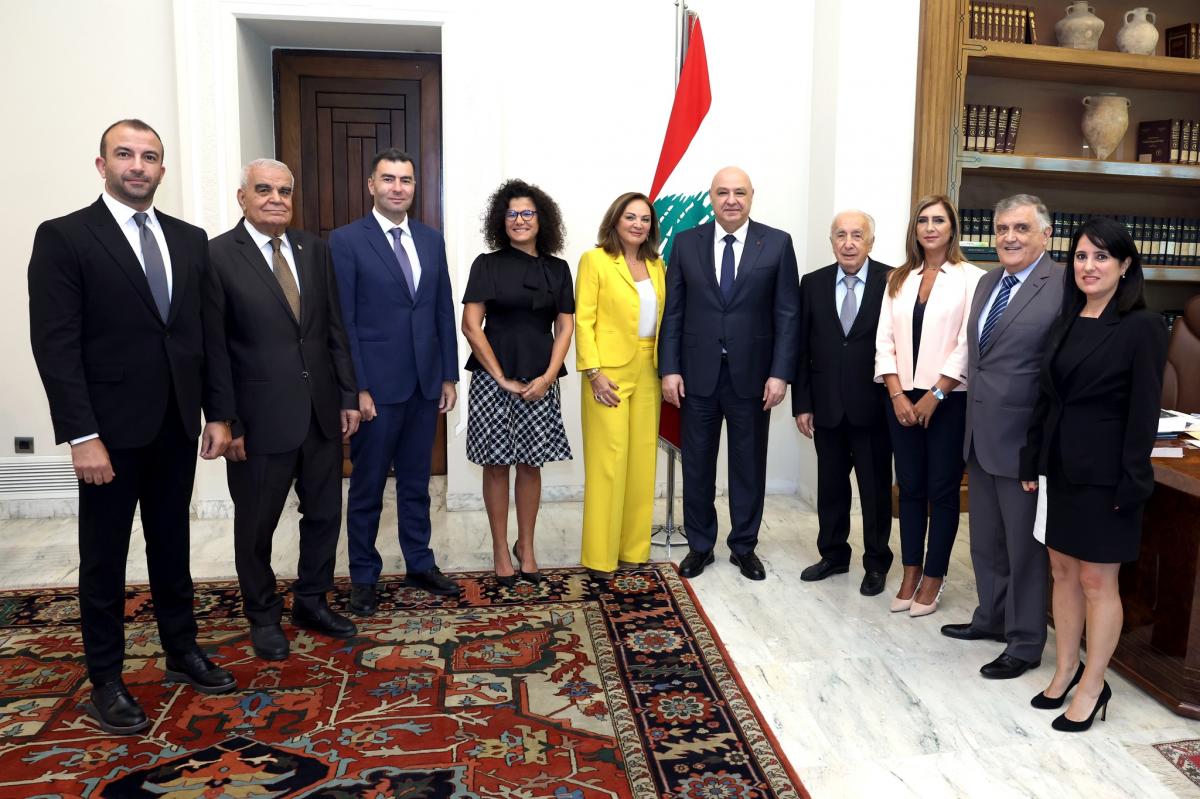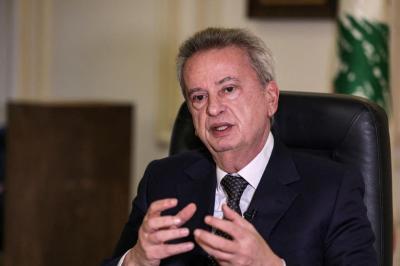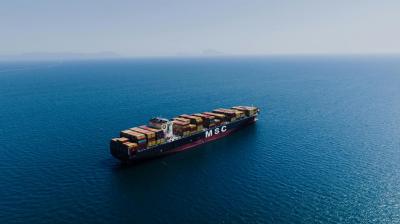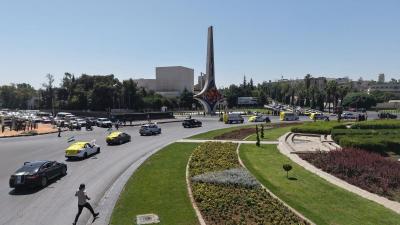A glass-bladed sword engraved with the phrase “Transparency is a sword to uproot corruption” is the first thing that catches the eye in the presidential palace’s meeting hall. Around the table, where the nation’s unresolved issues pile up, visitors seated across from this inscription—by protocol—cannot help but recall the milestones where corruption wreaked havoc in Lebanon, remember the inaugural pledge that put fighting corruption at the top of priorities, and reflect on the tangled web of political and financial interests. Such thoughts rush in—until a booming voice cuts through: “Mr. President,” announcing the arrival of President Joseph Aoun.
The visit, organized by the Association of the Business Journalists to Baabda Palace, was not merely a matter of protocol. It was intended to convey the concerns of the street and the productive sectors, to engage in frank discussion with decision-makers about financial and economic challenges, and to inquire about the path of reforms.
Lebanon “Not at Risk”
President Joseph Aoun appeared reassured by achievements on the political, economic, and security fronts. He told the delegation, “Lebanon is not at Risk. Much of what is being said is exaggerated and does not reflect reality.” Despite all the challenges, he said, the economy is expected to grow by 5% this year, with GDP rising to $30 billion, and financial inflows from tourism, exports, and remittances reaching nearly $20 billion. These positive economic indicators are accompanied by what he described as an excellent security environment. More than 1.7 million tourists visited Lebanon this summer, festivals flourished across the country, and, as he put it, “we did not see even a slap.” Lebanon is also preparing to welcome the Pope soon—an event laden with symbolism about the country’s role and the effort to restore trust in it.
Oversight Bodies Under Strain
The President’s positive tone when speaking of “macro-economic” indicators shifted when he addressed the condition of state institutions and oversight bodies, particularly those tasked with combating corruption, such as the National Anti-Corruption Commission and the Public Procurement Authority. These bodies and departments suffer not only from severe shortages of funding and staff, but also from a lack of the most basic tools: dilapidated buildings, chronic power cuts, and no means of heating or cooling. Such obstacles, he admitted, prevent them from fulfilling their crucial roles—despite progress in appointing regulatory bodies and advancing judicial reform in support of administrative reform, anti-corruption, and transparency in the public sector. In this context, Aoun proposed establishing a unified complex to house all oversight bodies, equipped with the necessary resources to enable them to work effectively.
A Long Road to Recovery
By recalling Greece’s financial crisis—which took nearly eight years to resolve despite massive EU and international support—the President suggested that Lebanon’s economic recovery will also be a long and complex process. That impression is reinforced by ongoing financial and economic deadlock within the system itself. “We approved the banking secrecy law, but we have yet to issue its implementing decrees. We passed the banking reform law, but its implementation remains suspended. Other laws face the same fate,” noted Culture Minister Ghassan Salameh in a recent television interview.
More than seventy financial, fiscal, and regulatory laws still await implementation decrees that have been stalled for years—perhaps indefinitely—because they clash with the interests of ruling elites. Chief among them is Law No. 55 on “exchange of information for tax purposes,” passed in 2017, which, if implemented, would block capital flight and money laundering and inject huge sums into the treasury from the activities and investments of Lebanese abroad.
Reality on the Ground is Tougher
The deeper one digs, the more complex the picture becomes, raising pessimism in contrast to the optimism that officials try to project. Speaker Nabih Berri himself told the Association of Economic Journalists in an earlier meeting that the 2026 budget will not pass in Parliament because it lacks allocations for reconstruction. He went further: “The economy cannot recover so long as the war continues.” And since there is still no agreement on the weapons issue, the war will not end—and the economy will not grow.
The 2026 budget could indeed be issued by decree at the end of January, if Parliament refuses to debate or approve it, since it was submitted within the constitutional deadline. But is that a healthy practice? Especially given that the current year’s budget was also issued by decree. Isn’t discussing and approving the budget—an exercise for which Parliament’s second ordinary session is specifically designated—at the core of lawmakers’ duties? Can the financial crisis be solved without passing the “financial gap” law? Can Lebanon restore international confidence without signing an agreement with the IMF? And can corruption be cut out with a sword blunted by obstacles from every direction?
There are many questions. The hope is that Lebanon’s authorities will regain momentum in addressing them. For, at the end of the day, the implementation of laws—no matter the cost—remains the only and ultimate solution. As the saying goes: “The last remedy is cauterization.”
Please post your comments on:
[email protected]
 Politics
Politics













